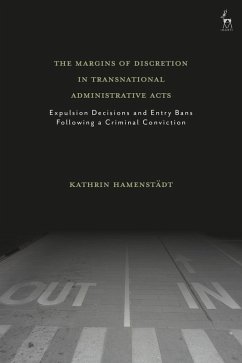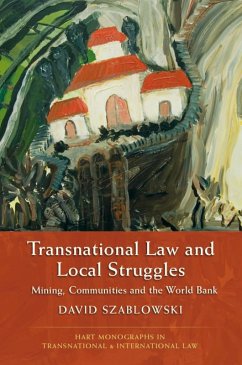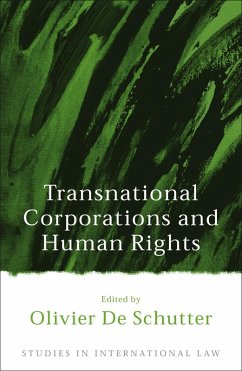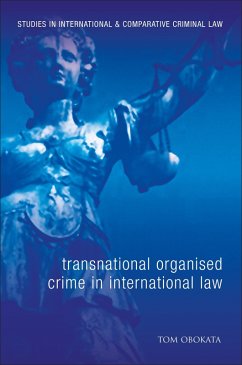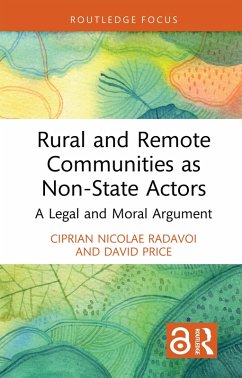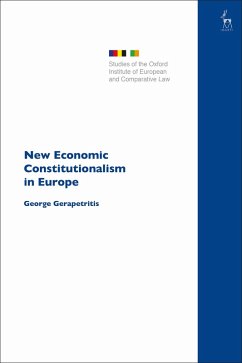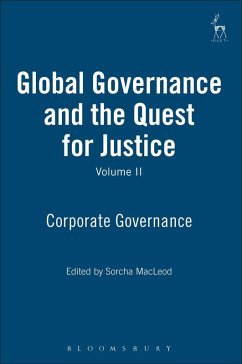
Transnational Governance and Constitutionalism (eBook, PDF)

PAYBACK Punkte
58 °P sammeln!
The term transnational governance designates untraditional types of international and regional collaboration among both public and private actors. These legally-structured or less formal arrangements link economic, scientific and technological spheres with political and legal processes. They are challenging the type of governance which constitutional states were supposed to represent and ensure. They also provoke old questions: Who bears the responsibility for governance without a government? Can accountability be ensured? The term 'constitutionalism' is still widely identified with statal for...
The term transnational governance designates untraditional types of international and regional collaboration among both public and private actors. These legally-structured or less formal arrangements link economic, scientific and technological spheres with political and legal processes. They are challenging the type of governance which constitutional states were supposed to represent and ensure. They also provoke old questions: Who bears the responsibility for governance without a government? Can accountability be ensured? The term 'constitutionalism' is still widely identified with statal form of democratic governance. The book refers to this term as a yardstick to which then contributors feel committed even where they plead for a reconceptualisation of constitutionalism or a discussion of its functional equivalents. 'Transnational governance' is neither public nor private, nor purely international, supranational nor totally denationalised. It is neither arbitrary nor accidental that we present our inquiries into this phenomenon in the series of International Studies on Private Law Theory.





